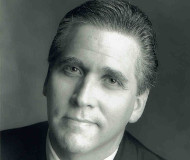2/14/2020
Lawsuit Takes On Red Light Camera Vendor For RacketeeringIllinois lawyer goes after red light camera vendor Safespeed for using fraudulent means to collect millions from motorists.

Red light camera vendor Safespeed is under federal scrutiny for its role in the bribery scheme that has already brought a guilty plea from one of the most powerful state politicians in Illinois. Martin A. Sandoval, until recently the state Senate Transportation Committee chairman, took bribes from the red light camera vendor Safespeed in return for his work blocking anti-camera legislation in Springfield. Now a local attorney, Kent Maynard Jr, is using a class action lawsuit to go after the vendor for racketeering.
"Plaintiff brings this action against defendants... for perpetrating a scheme through an enterprise specifically designed to defraud plaintiff and the class out of millions of dollars in fines issued by red light cameras that were corruptly and wrongfully installed and maintained as a direct and proximate result of bribes paid to public officials," Maynard wrote.
The suit seeks $70 million in refunds that would be returned to every motorist who received a ticket in the mail from Safespeed as a result of the bribery scheme between 2014 and 2016. The suit names all of the individuals believed to be involved as consultants and politicians advancing Safespeed's agenda. Maynard argued that Safespeed followed the model of Redflex, which bribed Chicago transportation deputy chief John Bills to set up the nation's most profitable camera network in the Windy City.
"In 2007, as Redflex was bribing Bills to consolidate Redflex's hold on Chicago, [Safespeed CEO Nikki] Zollar, Chris Lai, Khaled 'Cliff' Maani, and Khaled Maani's son, Omar Maani, founded SafeSpeed to cash in on the trend, especially in the relatively untouched suburbs southwest of Chicago," Maynard wrote. "The cornerstone of SafeSpeed's strategy to gain a competitive edge in the fiercely competitive and largely fungible market for red light cameras was to hire public officials (such as mayors and police chiefs) to moonlight as commissioned, undisclosed sales agents ('consultants') for SafeSpeed."
Each consultant allegedly received a 3.5 percent cut of every ticket issued by a camera deal they arranged. The suit argues that the consultants, as co-conspirators, should not be allowed to keep the proceeds of their fraudulent enterprise. Even with the lawsuit only in its early stages, the corruption scandal has cast a cloud over the industry.
Governor J.B. Pritzker (D) suggested he was open to reconsidering the use of automated ticketing machines if the state legislature were to withdraw its support.
"There are some people in law enforcement who will say that red light cameras can save lives, that they reduce traffic fatalities," Pritzker said. "There are others who see them only as a way of bilking people who are driving their cars and may make a mistake along the way. So I am open to the question."
In response to the scandal, the village of Riverside canceled its red light camera contract with Safespeed. The Illinois Department of Transportation had previously informed town leaders that "the red-light running camera is not justifiable" in the location that the company intended to operate.


